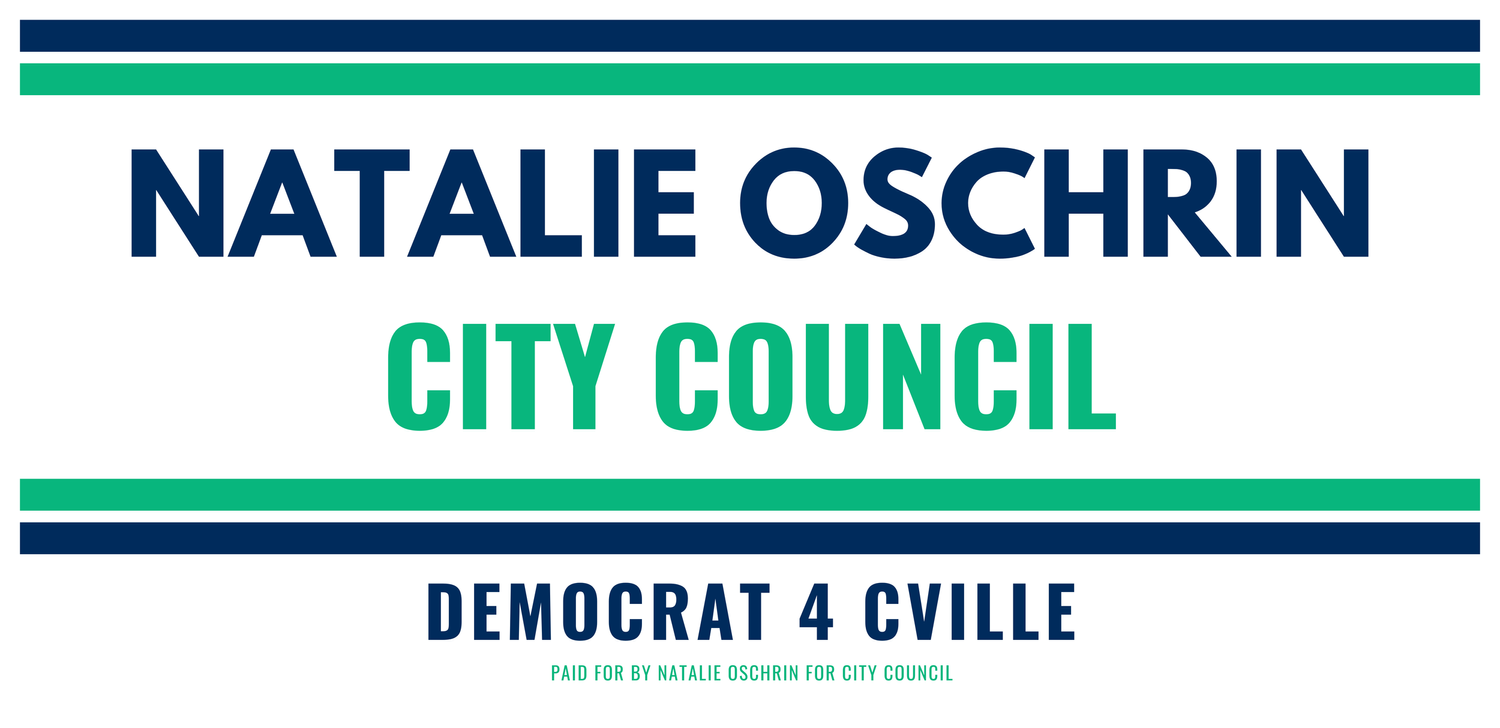MOVE CHARLOTTESVILLE FORWARD
MOVE CHARLOTTESVILLE FORWARD
Housing
Building the community within the city
Charlottesville is facing a housing affordability crisis, with MOST houses in the area priced over $400,000. The cost of paying rent, buying a home, and paying property taxes is rising unsustainably, pushing community members out of the city and driving inequity. That's why addressing the cost of housing will be a top priority for me if elected.
To get costs under control, we need to build more homes IN town. The city is going to pass a re-zoning plan soon that will technically allow owners to build more units on their land, but will still make it difficult to build homes that working people can afford. While I think the new plan is a step in the right direction, I anticipate that it will be slow and expensive for most individual homeowners to actually build these units, continuing the deficit of available housing. So I want to push for rules that allow new homes to be built at lower price points, including decreasing setbacks, reducing parking minimums, and real incentives for adding designated affordable units. I would like to make sure the city studies the effects of the rezoning on a regular basis to see if it is working.
Building more homes is essential for reining in housing costs, but addressing housing affordability requires multiple strategies. That's why I would continue funding affordable housing efforts with at least $10 million per year as laid out in the city's affordable housing plan. I also support expanding the Pathways to Housing and AHIP, and guaranteeing a right to representation for anyone facing eviction in Charlottesville.
Transportation
Everyone hates sitting in traffic, and we can all feel it getting worse. And when people are concerned about new houses being built, a lot of that worry stems from additional cars on their street, making noise, polluting, and endangering kids playing outside.
If we are serious about reducing traffic, making neighborhood streets safer, and having an impact in the fight against climate change, we have to invest in providing alternatives to using a car. Reducing car-dependency reduces air and noise pollution, improves accessibility for those who cannot drive or cannot afford cars, and lowers home construction costs.
I will pursue policies that prioritize sidewalks, bike lanes, and traffic-calming infrastructure, and promote the use of e-bikes so your trip is more pleasant, feasible, and safe. I am thrilled the city recently eliminated parking minimums for new construction, giving business owners the freedom to build what is right for them. Parking requirements induce sprawl and raise the overall cost of development which is then passed to the homebuyer or renter, decreasing affordability.
I support more bus routes and higher frequencies. A good public transportation system is when you can head to the stop anytime, without even checking the schedule, because you are confident the bus will pick you up soon.
By reducing parking and increasing housing, we can’t just make it harder for folks to drive and call it a day. We have to provide bike, pedestrian, and bus options that will one day feel like the natural choice.
Town & Gown
I was fortunate to attend UVA for college, getting to experience Charlottesville in a new way. As the University has grown in class size and land usage, the city can develop a more mutually beneficial relationship with the school. We need to encourage UVA to build more housing for students and allow increased density along student corridors like JPA to prevent further encroachment into neighborhoods like Fifeville & Fry’s Spring.
We should push for research on and possible implementation of a Payment In Lieu of Taxes, a “PILOT,” program so the city can access funding from UVA, which is exempt from property taxes but takes up a lot of city land. The UVA Student Council approves this idea and emphasizes that the funds should be used for schools and more affordable housing.
UVA and Charlottesville residents have to build the future together.
Our family cat cheers on the Cavs!
Community Safety
The city needs to continue to work to fix the underlying causes of crime. Feeling safe and being safe are two different things, and not feeling or having real safety takes a toll on mental wellness, happiness, and ability to achieve. Safety can come from many sources, including housing & food security, access to health care, slow streets, good education & job opportunities, and community support.
City Council is in a position to work with the City Manager and staff to ensure that city policies and budget priorities address these underlying causes first to protect our citizens. We need to focus resources on prevention instead of reaction.
I want to listen to and work with the community to reduce racial disparities in opportunity & enforcement, build a good relationship between the divisions of local government, and move towards a more secure future.







